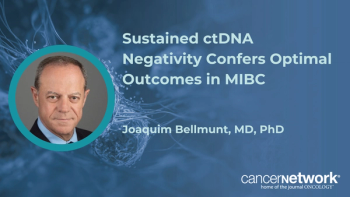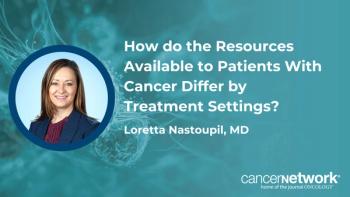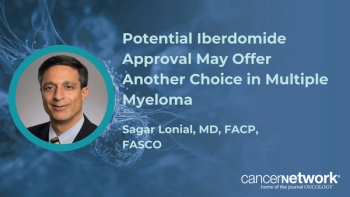
Examining Opioid-Related Hospitalizations for Patients With Cancer
Researchers looked at the trends and risk factors for opioid-related hospitalizations among patients with cancer.
Patients with cancer were rarely hospitalized for opioid-related reasons, according to a study published recently in JAMA Oncology. Although rates are increasing at a low rate over time, most of the hospitalizations are associated with non-heroin opioid poisoning, the study showed.
“In light of the wider opioid epidemic, oncologists and palliative care clinicians frequently balance providing patients with legitimate access to opioids while protecting them and the general public from the risks associated with prescribing these medications,” wrote
Chua and colleagues looked at the trends and risk factors for opioid-related hospitalizations among patients with cancer between 2006 and 2014 using data from the US National Inpatient Sample (NIS) of the Healthcare Cost and Utilization Project (HCUP). The primary outcome was opioid-related hospitalizations among adults age 18 or older.
Of the more than 25 million hospitalizations for patients with cancer, only 0.06% were related to opioids. From 2006 to 2014, the average number of opioid-related hospitalizations increased to 78.9 admissions per year (P = .01).
The majority of hospitalizations were non-heroin related (88.0%). The researchers identified several factors associated with opioid-related hospitalizations for patients with cancer, such as drug abuse (odds ratio [OR], 7.92; 95% CI, 6.95–9.02), depression (OR, 2.34; 95% CI, 2.13–2.58), psychotic disorder (OR, 4.13; 95% CI, 3.66–4.65), white race, younger age, and year of hospitalization.
“Prior to prescribing opioids for cancer-related pain, routinely screening patients using standardized tools based on these associated factors (eg, Opioid Risk Tool) may identify those patients with the greatest risk of an opioid-related hospitalization,” the researchers wrote. “Additional research on opioid risk screening and management for patients with combined cancer and substance use disorders is needed.”
“As a practicing emergency physician in inner-city Baltimore, I see this problem multiple times every shift. However, as noted within the article, the impact of this problem among patients with cancer is quite rare (0.06% of admissions) and has a very low rate of increase,” Hirshon said. “There are some weaknesses to the research, as it may underestimate the rate of the problem because it is based solely upon the primary diagnosis field and may have missed the diagnosis if placed in a secondary field. However, in the end, the article does not significantly impact clinical practice of emergency medicine and the need to remain vigilant both to the pain treatment needs of patients with cancer, as well as the continuing scourge of opioid misuse and abuse regardless of the patient population.”
Newsletter
Stay up to date on recent advances in the multidisciplinary approach to cancer.



















































